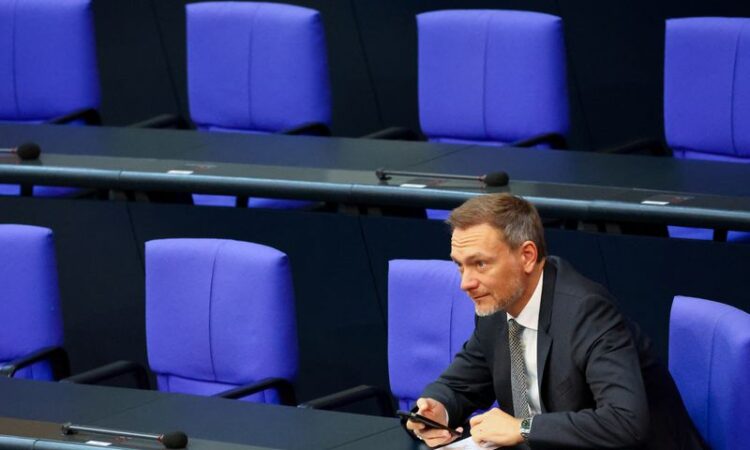
By Markus Wacket and Holger Hansen
BERLIN (Reuters) -A letter by two top German ministers on Thursday suggested the government would oppose a draft European law which would require large companies to take action if they find their supply chains employing child labour or damaging the environment.
The landmark EU law, agreed by the bloc’s lawmakers and council of member states in December, is due to be formally signed off as soon as next week and could see companies face fines of up to 5% of global sales for breaching the rules.
German businesses have criticised the law, fearing it will create bureaucracy and legal uncertainties.
The letter, sent by Finance Minister Christian Lindner and Justice Minister Marco Buschmann and seen by Reuters, said the government planned to abstain on the issue.
While Germany alone cannot block the law’s approval, its abstention would be seen as a substantial sign of disapproval which other countries unhappy with the law could follow.
“In the Council of the European Union, this results in Germany abstaining, which ultimately has the effect of a ‘no’ vote,” the letter, which government sources said was addressed to business groups, said.
Both ministers, as members of Germany’s pro-business Free Democrats party (FDP), do not represent the views of the whole ruling coalition where the mood has been fractious.
Chancellor Olaf Scholz on Thursday acknowledged on Thursday there were differences in the cabinet on the issue, telling a press conference in Brussels that, while there were discussions, “progress is a snail”.
Labour Minister Hubertus Heil from the coalition’s Social Democrats (SPD) wants to put forward proposals to ease the bureaucracy that companies would face, as a way of placating the FDP, according to officials in his ministry.
Major business associations argue that the draft guidelines go far beyond the current German supply chain law.
“German industry is relieved” by the letter, Federation of German Industries (BDI) President Siegfried Russwurm said. “It’s good that Berlin doesn’t support this wrong path.”
The rules will apply to companies in the EU that have more than 500 employees and a net worldwide turnover of 150 million euros. For non-EU companies it will apply if they have more than 150 million euros of net turnover generated in the bloc, three years from the rules coming into effect.
Lindner and Buschmann’s letter said there are significant liability risks because the EU’s draft corporate sustainability due diligence directive (CSDDD) is based on a very broad definition of the supply chain.
“We can also expect significant additional financial, personnel and also bureaucratic burdens for our companies,” they said, arguing it could end up with German companies being supplanted by Chinese rivals with worse human rights records.
The employers’ association Gesamtmetall welcomed the FDP’s resistance to the proposal, with President Stefan Wolf warning it would force more companies to withdraw from individual countries and drown firms in bureaucracy.
“Only consultants and lawyers benefit from this,” he said.
(Reporting by Christian Kraemer, Holger Hansen, Alexander Ratz, Markus Wacket, Sabine Siebold, Andreas Rinke, Philip Blenkinsop; writing by Matthias Williams, Editing by Kylie MacLellan and Andrew Heavens)






